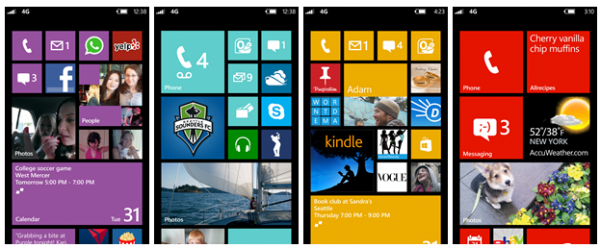How does Windows Phone 8 affect you?

Something at Microsoft has changed, and it's rather startling. The company so long risk-adverse takes some really big ones -- with Windows 8, Windows Phone 8 and Surface tablets high among them. Windows 8 radically changes the user interface, which already irks some long-time customers, particularly in businesses. Windows Phone 8 is incompatible with every WP handset ever sold, even two-and-a-half-month old HTC Titan II or Nokia Lumia 900. Surface competes with OEM partners, and some already complain Microsoft blind-sided them. This isn't your father's Microsoft, or elder sibling's.
For years, Microsoft sought to preserve the status quo, and still does. But no longer is CEO Steve Ballmer and his top guns willing to stand still while the market moves forward. IBM chose status quo during the computing-era transition from mainframe to PC -- cater to existing customers and preserve existing revenue streams. For years, Microsoft followed similar course during the early transition from the PC to the cloud-connected device era. No longer. Microsoft takes big risks to preserve its computing relevance, and they'll either sink the company or preserve its place in the new world order. The question: How does it all affect you?
Hard Upgrade
Today, I put that question to anyone who recently bought Windows Phone or is planning to do so. The first handsets running the operating system shipped two years ago come autumn. That means except for some international customers with 18-month contracts or those buying unlocked handsets (or prepaids), every Windows Phone ever sold is bound by some contractual commitment. Their buyers won't be able to upgrade the software to Windows Phone 8 or be eligible to buy subsidized handsets (unless Microsoft and carriers work together to allow it). From the perspective of future upgrades, every Windows Phone now available is obsolete -- or will soon be. My question: Does that matter to you?
I can understand some reasons why Microsoft would leap Windows Phone 8 ahead, while leaving customers behind. For starters, there are fewer of them than the potential number in the future. At the end of first quarter, for example, Windows Phone global market share, as measured in actual sales, was 1.9 percent, according to Gartner.
Windows Phone really has no place to go but up, and the company wants to improve the platform's architecture while bringing it more in line with Windows 8. As example, the move to native code software development, which should improve the quality and number of applications -- something Microsoft already provides on Windows 8. These changes should make the mobile OS more competitive with Android and iOS.
Risky Business
The risk isn't so much number of customers, but who they are. Presumably, many Windows Phone buyers are Microsoft enthusiasts -- the kind of customers who influence other buyers. Some also may be Nokia enthusiasts, which is another concern. Microsoft imposes risks on its hardware partners, too, with Nokia being most affected. The manufacturer has adopted Windows Phone as its primary mobile OS, and the majority of handsets supporting it are merely months on sale. Nokia is in dire straights. During last week's layoff announcement -- some 10,000 employees -- CEO Stephen Elop said that Windows Phones aren't selling as well as Nokia expects.
The question: Could Microsoft's backward-incompatibility approach and Windows Phone 8 announcement now stall Nokia Lumia sales? Surely Nokia knew this was coming, which offers additional context to last week's cut-back announcement, Elop warning of rockier-than-expected Lumia sales and his emphasizing renewed commitment to feature phones -- even as IDC warns plummeting dumb phone sales.
What Irony
There's a strange irony here. For years, Apple had a well-deserved reputation for making changes, mainly hardware, that left customers behind. For example, I recall in 2001 owning three Mac monitors which connectors were all incompatible; they had to be matched to the right computer or be useless. Meanwhile, Microsoft has long made backward compatibility a development priority. Suddenly roles are reversed. Apple's forthcoming iOS 6 will run on iPhone 3GS, which launched three years ago. Windows Phone 8 is incompatible with handsets released this quarter. To reiterate, this isn't your daddy's Microsoft.
So that's another thing changed. Microsoft has long had well-deserved reputation for being one of the best partners. But Surface and Windows Phone 8 show a different Microsoft emerging, one willing to leave them behind to push Windows ahead. There's good reason. The future relevance of Microsoft's core platforms are in jeopardy.
What's good for Microsoft might not be good for you. But only you can answer that, which is why today I ask: How does Windows Phone 8 affect you? If you recently bought a WP handset, do you care there is no Windows Phone 8 upgrade? Responding, please state which phone you have and when purchased. If planning to imminently buy a new Windows Phone, will you still do so, wait or even buy something else? State what would buy or whould have bought. I'll compile your responses into a future post.